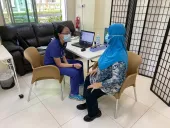
Cheaper cell therapy gains ground in Australia, China, and Japan
In China, 80% of CAR-T trials are already being conducted by hospitals.
As Asia moves towards Universal Healthcare Coverage (UHC) schemes that are geared towards access and affordability, new cancer therapy technologies are expected to emerge given that pricey Traditional Health Technology Assessments (HTAs) may not be fit-for-purpose, KPMG said.
According to a report, one of these technologies could be Chimeric Antigen Receptor T, or CAR-T. “Advances in genetic engineering combined with an improved understanding of ‘T’ cells have led to the design of synthetic tumor targeting receptors which, when introduced into the human body, begin to act as a form of immunotherapy,” explained Ajay Sanganeria, head of Life Sciences at KPMG.
In Australia, KPMG cited an instance wherein they were challenged by a Life Sciences multinational to determine the appropriate funding pathway for Federal Government reimbursement of a CAR-T innovation. “As an inter-dependent, stepwise process that involved medical and manufacturing procedures (patient and nonpatient facing), the CAR-T was not a standalone item. Whilst funding pathways exist in Australia for Leukapheresis and T-Cell infusion stages of treatment, there was little precedent for the government to pay a sponsor company for the manufacture of patients’ extracted T-cells,” the report said.
Australia’s funding pathways
Both the Life Sciences MNC and KPMG accepted that the government would wish for CAR-T to be subjected to the same rigor. Moreover, as a Class 4 Biological, the CAR-T innovation was not eligible for consideration by the Pharmaceutical Benefits Advisory Committee (PBAC).
“Therefore the Medical Services Advisory Committee (MSAC) appeared to be the obvious choice for HTA; however, the MSAC had little experience in evaluating targeted therapies such as CAR-T and, for the Life Sciences MNC, minimal exposure in navigating the pathway through the committee. In addition to HTA, the greater challenge was how the funding would be enabled in the complex UHC system of Australia,” KPMG said.
Some progress has been made, with funding achieved in 2019 for patients with paediatric Acute Lymphoblastic Leukaemia (pALL), the report noted. “The funding was made possible via a series of agreements between the Australian government and the states and territories. The Federal Government also announced an $54.08m (A$80m) investment into the manufacture of CAR-T at the Peter MacCallum Cancer Centre, ensuring that all stages of the CAR-T pathway are able to remain in Australia. Critically, the reimbursement pathway enabling patient access has been successfully navigated in Australia for CAR-T and ultimately opened the channel for funding of other cell therapies,” Sanganeria added.
China’s localisation play
Over to China, CAR-T clinical trials have already gained ground, with 80% already being conducted by the hospitals themselves.
According to KPMG, there has been early multi-stakeholder dialogue as the country prepares for initial CAR-T launches, keen to look beyond traditional chemotherapy or stem-cell transplantation options. “These stakeholders includes local CAR-T innovators, joint ventures of the same with the foreign MNCs, and the myriad of hospitals and patient communities across the provinces who are becoming increasingly knowledgeable and opinionated,” the report said.
However, KPMG has observed that in China, the manufacturing and logistics of CAR-T is complicated, as characterised by short shelf life and cold chain requirements, combined with limited experience in handling cell therapies containing toxicity. “There remains a lack of appropriate standards and accreditation,” Sanganeria added.
“The cost composition of CAR-T is unique and therefore difficult to price (and prove) in a new market – some sort of value-based contracting model will likely continue to be the strategy, which means alignment across multiple stakeholders, channels, and decision-makers is critical,” KPMG added.
Japan’s data-driven CAR-T journey
Meanwhile, the first CAR-T products in Japan are expected to become available to patients in August 2019.
According to KPMG, Japan is taking the opportunity to proactively structure the public-private databases so as to link the therapy information, clinical guidelines, outcomes measures and patient profiles. “This is expected to serve both regulatory as well as business endeavors.”
The firm is also expecting the country to recreate its own version of a US database on outcome data on every allogeneic transplantation.
“The database is scheduled to have the first patient data inputted by October 2019, and to be able to share the data with the stakeholders by March 2020. It will be the first database to store cellular therapy data in Japan that can be shared across members of the industry,” KPMG shared.
Concurrently, a data center in Japan is conducting a nationwide collection of recipient, donor, and outcomes information. “It is therefore expected that this data center in Japan will be one of the main data providers for the new overarching cellular therapy database,” KPMG said.













 Advertise
Advertise













